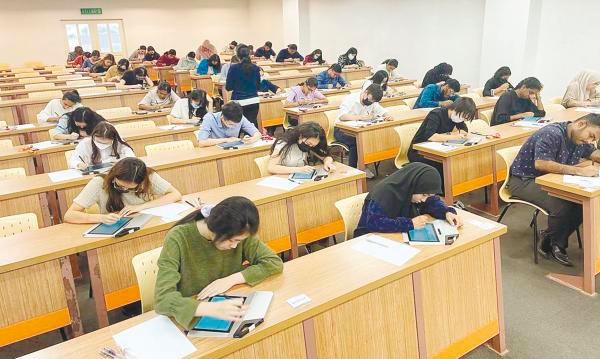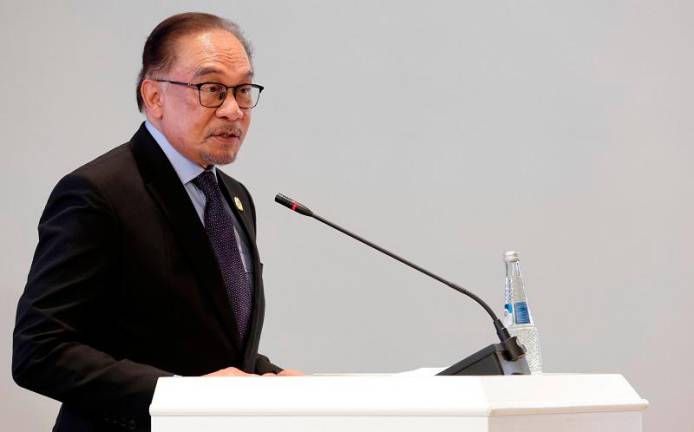MALACCA: Medical education provider Manipal University College Malaysia (MUCM) marked a historic milestone by becoming the first institution in Malaysia to fully implement paperless digital examinations, as part of its ongoing digital transformation journey.
Students will be able to answer questions digitally, e-pads will be allowed for drawings and other data will also be submitted digitally.
All information will be securely stored for retrieval by examiners and examination auditors.
MUCM successfully conducted the first phase of the digital examination for 130 students in the Faculty of Dentistry on Feb 26, in which students submitted answers through e-pads issued by the university.
Another batch of 262 students in the Faculty of Medicine will also undertake digital examination in Mar 2024.
MUCM intends to roll out the paperless digital examination format across all batches of students in faculties including Medicine, Dentistry, Allied Health & Psychology and Centre for Foundation & General Studies, by early 2026.
The digital examination system also eliminates the need for printing question papers and answer booklets as well as the shredding of used papers.
It would drastically reduce the number of invigilators required, involving only one to two persons per examination.
Lecturers would also be able to mark and evaluate results faster and efficiently, with the help of digital calculation of marks and percentages.
MUCM Vice-Chancellor Prof. Dr Patrick Kee Peng Kong said MUCM takes pride in being at the forefront of implementing next-generation technologies to enhance efficiency and accuracy.
“Today, we present to you a solution that ushers in a new era of efficiency, security and adaptability in our education system. Our students would be able to gain a smoother transition from their daily teaching and learning, and eventually into the digital healthcare system in the real world.
“This technology allows for quick and accurate assessment, providing both students and faculties with good insight into academic performance.”
Patrick said the total cost of investment for the development of the digital examination system is RM500,000 and it would cost RM150,000 annually, making it worthwhile for the initial investment.
Before the digital examination system, MUCM had encouraged digital learning in their institution by encouraging students to use their own tablets and submit assignments using a digital platform, allowing students and lecturers to familiarise with the formats.
To prevent identity fraud during examinations, each student is identified through an iris scan on the e-pad before proceeding. The e-pads are also equipped with features for enhanced ease and comfort, such as inbuilt calculator, graph sheets, highlighters, drawing, colouring and editing tools.
Littlemore Innovation Labs Pte Ltd founder and CEO Srikanth Ganesan, who developed the technology for MUCM, applauded the university for its pioneering move to become the first university in Malaysia to adopt a fully digital and paperless examination system.
“This milestone not only positions MUCM at the forefront of educational innovation, but also underscores its commitment to environmental sustainability.
“The commitment to sustainability in the long term is important as more and more universities develop a digital footprint,” he said.










